Lucky 13: French Films with the Most César Award Nominations
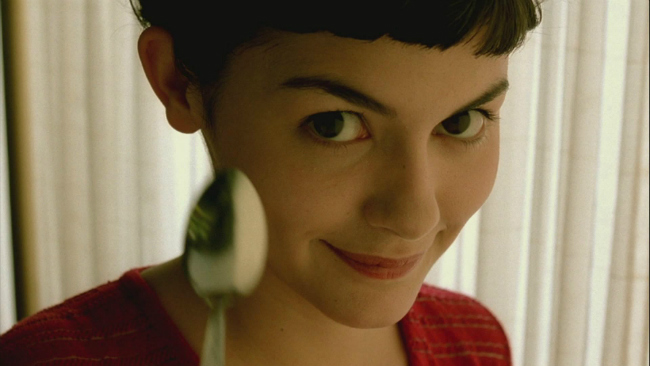
NEZ, NEZ AND THRICE NEZ
Cyrano de Bergerac (1990), Cyrano de Bergerac
Filmed versions of Cyrano de Bergerc, Edmond Rostand’s 1897 crowd-pleasing play about a big-beaked poet and swordsman ashamed of his looks who sends love messages by proxy to woo his beautiful cousin Roxane, had good previous form’ to the biggest prizes in cinema by the time this much-garlanded 1990 version came around.
For his 1950 portrayal of the romantic lead, Puerto Rican Jose Ferrer beat off William Holden, James Stewart and Spencer Tracy to win the Academy Award for best actor. So when ciné icon Gérard Depardieu stepped up to the lead role it was a box office smash, racking up a respectable 4,732,136 admissions in French cinemas (though this doesn’t even make it into the top 100 list of French productions).
With its lavish period feel and compelling lead, it proved a hit with the César academy, and got 13 nominations. It took home a record-equalling 10 gongs including those for best film and best actor for Depardieu who, to this day, stands alone as the most nominated actor (17) since the Césars began in 1976.
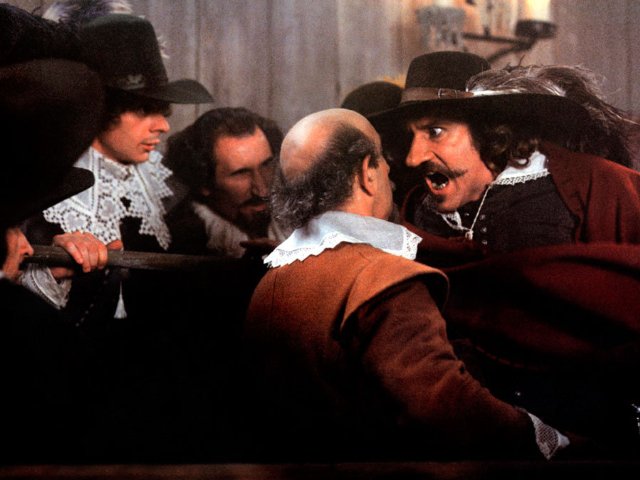
Gérard Depardieu in Cyrano de Bergerac (1990)
RECORD PROPHETS
Un Prophète (2009), A Prophet
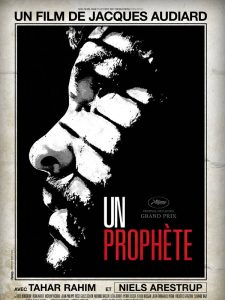
Un prophète, directed by Jacques Audiard
The next film to feature at the top of the nominations tree for the sculptor César Baldaccini-designed golden gong is this immensely hard-hitting prison drama from Jacques Audiard. The director was used to his films hitting a chord with the cinematic powers that be – in 1984 his first feature See How They Fall took the César for Best First Feature, while subsequent offerings like Read My Lips (nominated) and The Beat That My Heart Skipped (won) also troubled the Best Film categories. It was a breakout role for Tahir Rahim as a small-time crook who rises up through the prison’s criminal hierarchy by ingratiating himself to the establishment’s rival factions, Corsicans (whose head is played with creepy menace by Niels Arestrup) and Muslims. As for Audiard, his star shines brighter than ever –after A Prophet’s nine Césars, Rust and Bone was heavily nominated in 2012 while 2015’s Dheepan, just missed out to Fatima for Best Film in this year’s awards.
A CAPITAL COURTSHIP
Le Fabuleux Destin d’Amélie Poulain (2001), Amélie
Even people who claim to know little about French cinema or, shock horror, ‘don’t really like foreign films’ fell head-over-heels for the considerable charm of Amélie (its name for the English-speaking audience). This is presumably thanks to the winning combination of honey-sweet storylines, witty one-liners, a heartbreaking and doe-eyed lead performance from Audrey Tautou and dazzlingly inventive directional tricks by Jean-Pierre Jeunet. It was a rare example of a French film capturing the hearts of millions beyond the Francophone world. It also received rapturous critical praise. It took the César for best film and best director in (it won four in total from its 13 nominations).
OFF THE RAILS
Subway (1985), Subway
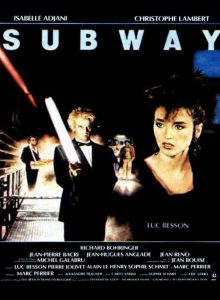
Subway, directed by Luc Besson
It’s no surprise that the 1980s, that decade of escapism and new-found glamour, spawned the ‘cinema du look’. The three primary exponents of this flashy, heavy-contrast visual style, which did away with any form of naturalism, were the ‘unholy’ trio of Luc Besson, Jean-Jacques Beineix and Leos Carax – the former two worked in commericials prior to helming feature film and were well versed at grabbing the viewer’s attention.
Beneix made Diva in 1981 and arthouse cult classic Betty Blue five years later. Sandwiched in between was Besson’s Subway, a high-energy subterranean romp about a mysterious criminal who’s stolen documents from a gangster. Fred (Christopher Lambert), evades les flics by hiding out in the métro tunnels and stations of Paris and falls for Isabelle Adjani’s gangster’s moll. Adjani claimed the best Actress César and today stands as the only five-time acting winner.
FEEL THE FORCE
Polisse (2011), Polisse
Maïwenn’s hard-hitting drama about a photographer who joins a Paris child protection unit to document their harrowing work was awarded the Jury prize at the 2011 Cannes Film Festival, but it was at the César awards the following year that critical acclaim was rewarded with multiple award nominations. The film achieved a record-equallying 13 nods, although it only took home two prizes on the night (for best editing and most promising actress, Naidra Ayadi). It had the misfortune to be in competition with two of the year’s major successes, Untouchable and The Artist (which scooped six awards).
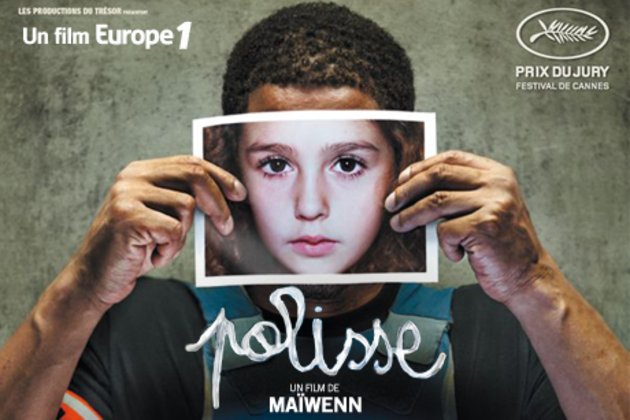
Polisse, directed by Maïwenn
More big César winners
The only other film to get 13 nominations was Camille Redoublée in 2013, but it won no prizes. The largest César haul for one film is 10, for Le Dernier Métro and Cyrano de Bergerac. Only two films, Le Dernier Métro and Amour have take the ‘big five prizes’ – for best actor, best actress director, film and writing.
From France Today magazine
Share to: Facebook Twitter LinkedIn Email
Leave a reply
Your email address will not be published. Required fields are marked *



